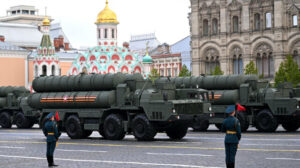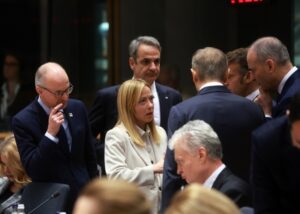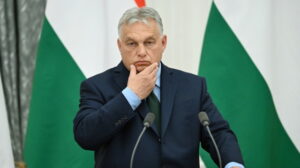Developments in Ukraine: A Changing Battlefield
The developments on the war front in Ukraine are intense and logical, considering Biden’s “approval” for the use of medium- and long-range weapons on Russian territory. These changes are reshaping strategies once again.
The period leading up to January 20, when Joe Biden hands over not just the keys to the White House but also control of the U.S. to Donald Trump, sees both Eastern and Western fronts scrambling to secure as many “bargaining chips” as possible.
Russia’s Doctrine Revision: No Surprise for the U.S.
The revision of Russia’s defense doctrine was predictable for the U.S., as President Putin had declared his intentions for over a year. Russia’s nuclear threats have been a reality for at least two years, especially since Europe openly committed to bolstering Kyiv’s defensive and offensive capacities.
Today, both sides’ positions are entrenched. After 1,000 days of war, neither Ukraine nor Russia seems willing to compromise on their red lines, while other parties have now become active participants in the unfolding events.
The West’s Silence and Lavrov’s Warning
The U.S. and Europe have remained silent about Moscow’s statements, but a crucial point emerges from Russian Foreign Minister Sergey Lavrov’s remarks. Lavrov emphasized that the shift is not about changes in the defense protocol but about the need for the U.S. to interpret these changes carefully.
Lavrov clarified that missile strikes using medium- and long-range weapons are not only a formal breach of Russian boundaries but a substantive one. The “inaction” and “silence” from across the Atlantic leave little room for maneuvering on Putin’s part. Surprisingly, Biden and Trump seem to have found an “unspoken” agreement on foreign policy, targeting Putin. Meanwhile, Trump himself has avoided public statements on the matter, and no one from his camp has condemned the U.S.’s support for Kyiv.
Escalation and Broader Implications
The threat to Russia is apparent, as it is to North Korea, which risks becoming the pretext for a dangerous “all-in” with its troops’ involvement in Kursk. Europe, on the other hand, appears better prepared—or at least more aware of American initiatives.
Despite Chancellor Scholz’s “outlier” phone call to Putin, France and Britain have refrained from issuing declarations on providing more ATACMS to Kyiv. However, this does not mean they won’t—or haven’t already.
Zelensky’s Stance and Ukrainian Resilience
Volodymyr Zelensky’s recent remarks in the European Parliament that “now the missiles will speak” have likely been “deliberately” misinterpreted. While Zelensky lacks the unilateral ability to assert his military strength—since Ukraine’s weaponry is of Western origin—he has every reason to firmly declare that Ukraine will fight to the end.
Despite three years of grueling war and immense suffering for the Ukrainian people, when 4 out of 10 Ukrainians still insist that their country should not cease fighting, the internal resolve remains intact.
A Critical Winter Ahead
With rapid developments and dense events on all fronts, the coming winter is expected to be the most crucial since the Russian invasion nearly three years ago. The inevitable escalation could mark the culmination of a drama unfolding since February 24, 2024. It remains to be seen whether this climax will lead to resolution for the heroes involved.
Ask me anything
Explore related questions





